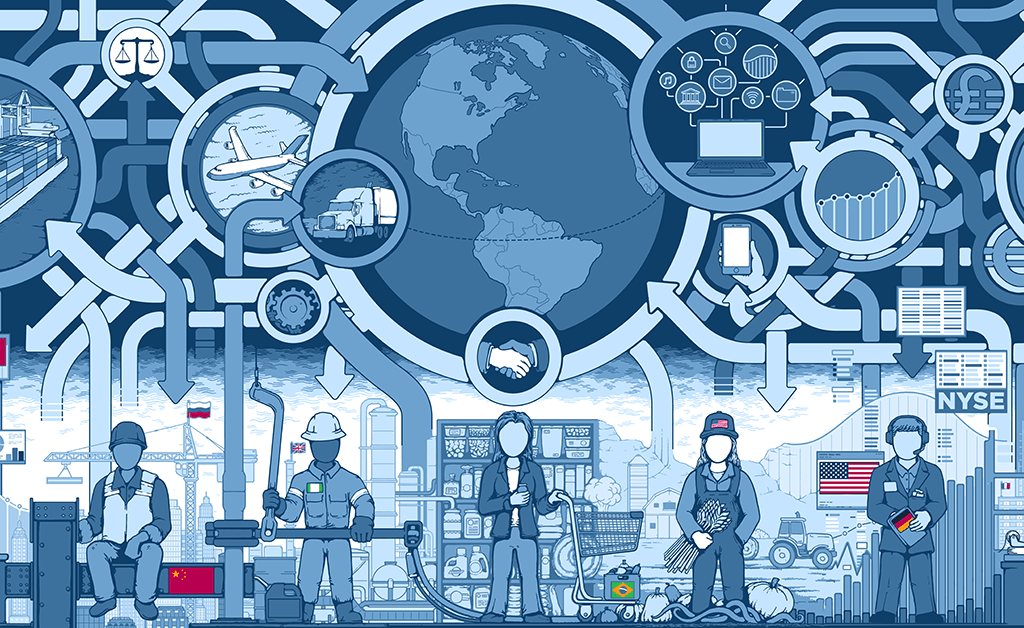The Impact of Globalization
The Impact of Globalization on Politics and Society
Globalization, the increasing interconnectedness of countries and peoples around the world, has had a profound impact on politics and society.
The economic, social, and cultural changes associated with globalization have created both opportunities and challenges for individuals and governments. In this essay, we will explore the impact of globalization on politics and society.

One of the most significant impacts of globalization on politics is the increased interconnectedness of countries and the rise of international organizations.
The creation of institutions such as the United Nations, World Bank, and International Monetary Fund has helped to foster cooperation between countries and promote economic development.
These institutions have also played a role in shaping global politics, influencing issues such as trade, human rights, and environmental policy.
However, the ascent of international organizations has triggered tension among nations, especially concerning sovereignty and national identity. Some perceive globalization as jeopardizing their cultural and political independence, fueling nationalism and populism worldwide.
Globalization has also had a significant impact on the economy, creating both winners and losers. The growth of international trade and investment has led to increased economic growth and job creation in many countries, particularly in developing nations.
However, globalization has also led to the displacement of jobs and industries in developed countries, contributing to income inequality and economic insecurity.
The rise of global supply chains has also made it difficult for governments to regulate multinational corporations, leading to concerns about labor rights, environmental degradation, and tax avoidance.
This has sparked global protests and movements addressing climate change, economic inequality, and workers’ rights.
The impact of globalization on society has been similarly complex. The spread of technology and information has created new opportunities for communication and cultural exchange. Leading to the creation of global communities and the sharing of knowledge and ideas.
This has spurred the creation of new cultural products and the rise of social movements addressing human rights and social justice.
However, globalization has also contributed to the erosion of traditional cultural values and the homogenization of global culture. The spread of Western values and cultural products raises concerns about cultural imperialism and diversity loss.
This has sparked cultural nationalism’s rise, promoting local culture to resist globalization’s influence.
Another significant impact of globalization on society is the increased movement of people across borders. Migration has increased dramatically in recent decades, driven by factors such as economic opportunity, political instability, and environmental degradation.
This has caused cultural and demographic shifts in many countries, fueling debates on immigration, integration, and multiculturalism.
Globalization’s impact on politics and society varies across regions. In developed countries. It has fostered a global elite capitalizing on its opportunities, leaving others marginalized.
In developing countries, globalization has spurred economic growth and social progress but also exacerbated wealth inequality.
Conclusion
The impact of globalization on politics and society has been both positive and negative.
While globalization has created new opportunities for economic growth, cultural exchange, and social progress. It has also caused job and industry displacement, cultural values erosion, and wealth inequality expansion.
Globalization challenges require innovative solutions to balance increased interconnectedness with protecting national sovereignty, cultural diversity, and social justice. 카지노사이트




